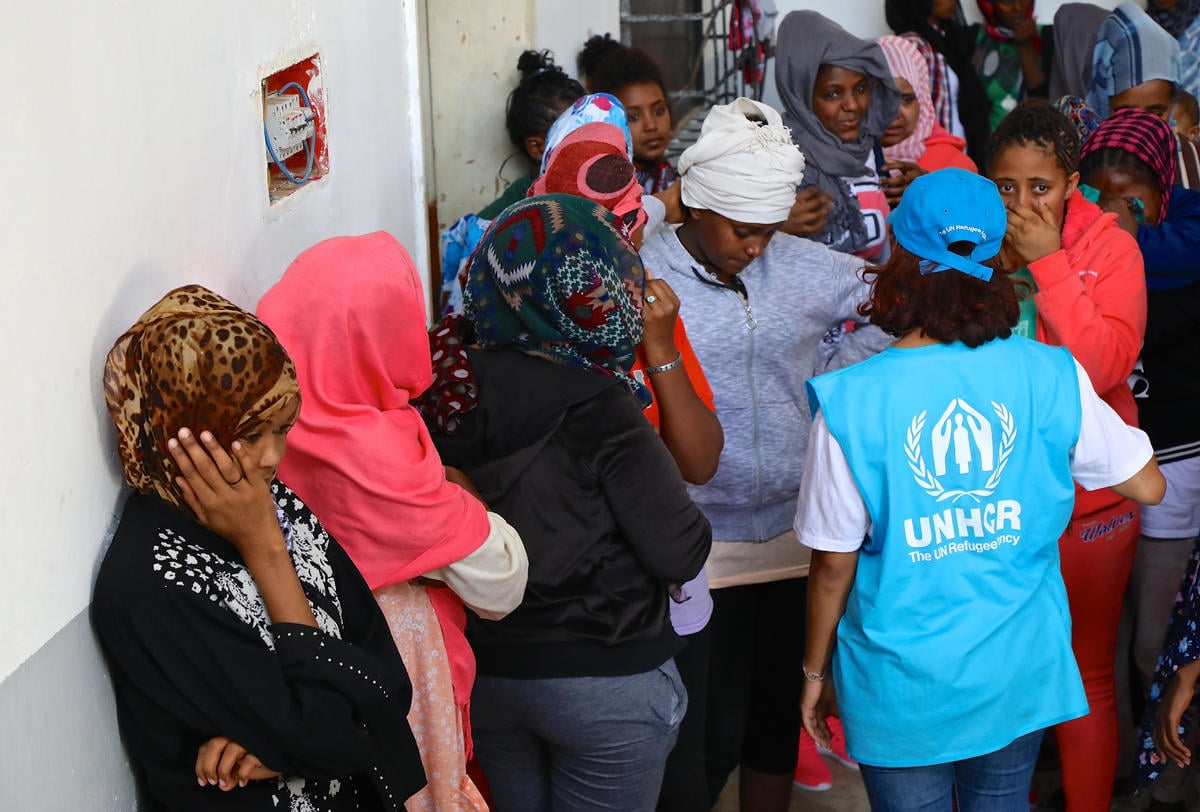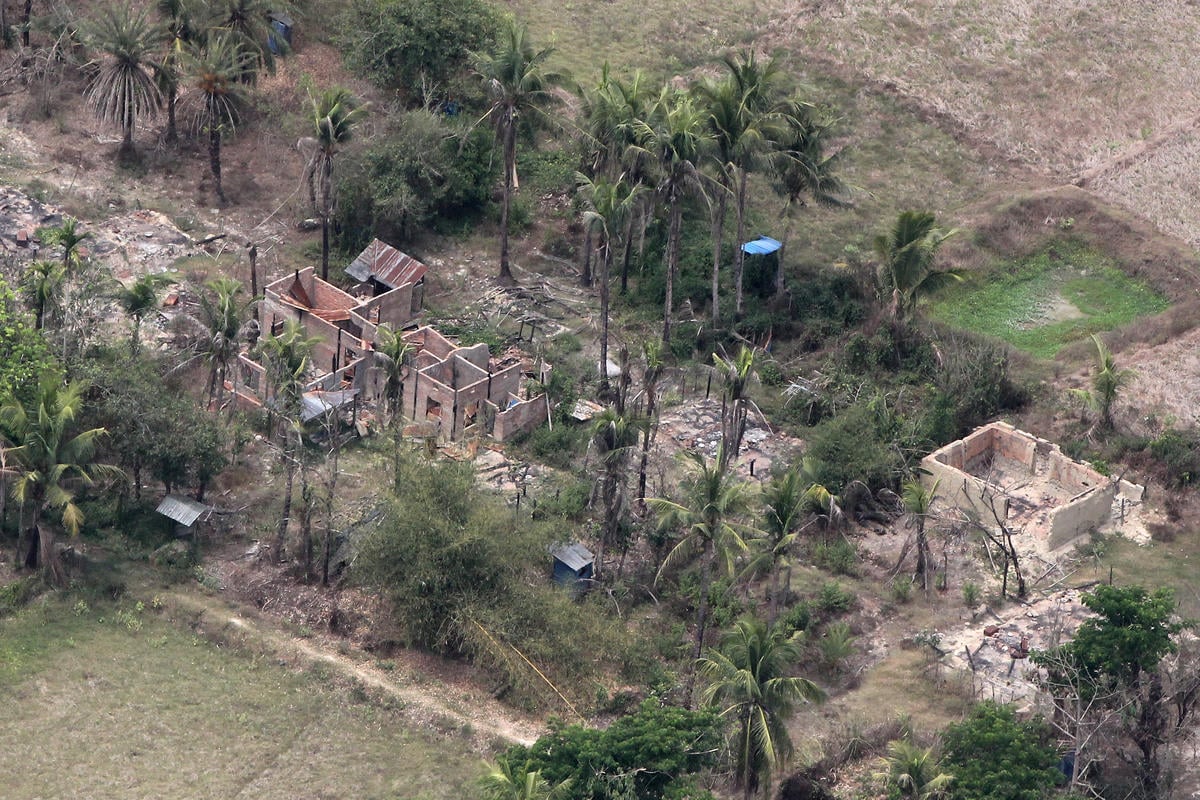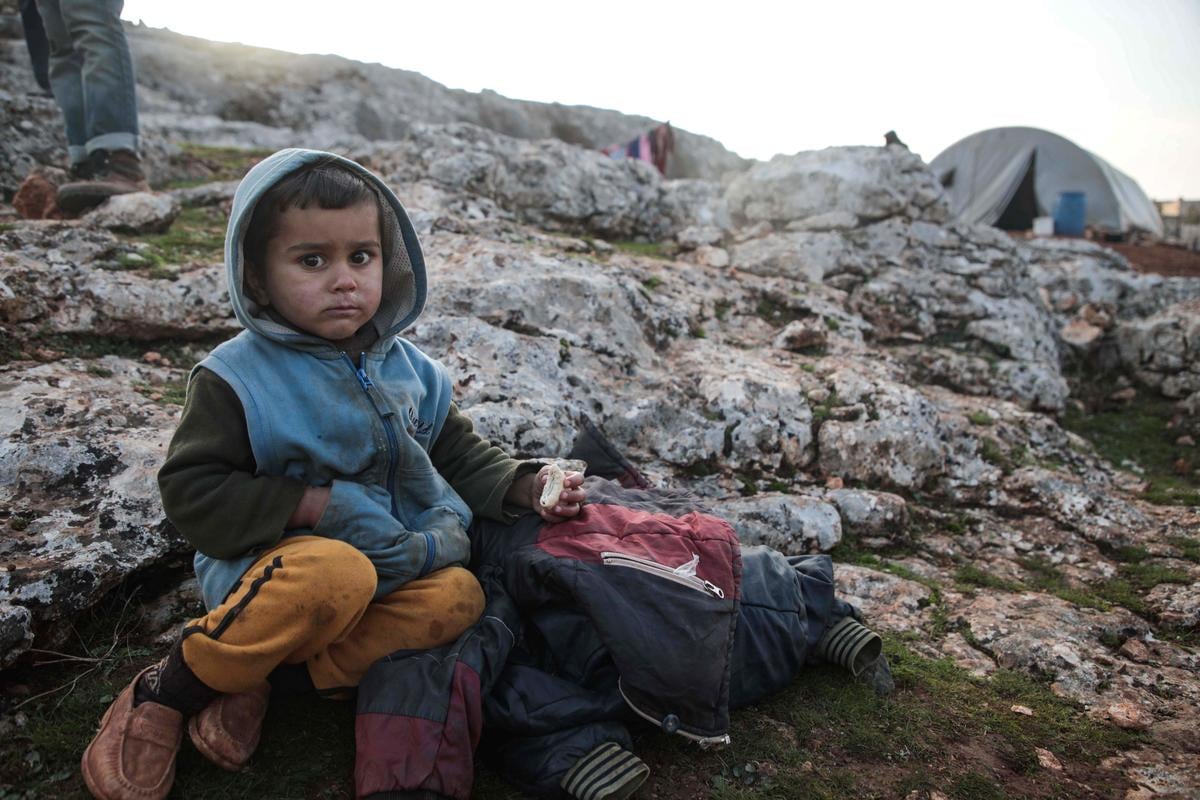High Commissioner Guterres seeks stepped up access and aid for Yemen
High Commissioner Guterres seeks stepped up access and aid for Yemen

SANA'A, Yemen, January 17 (UNHCR) - UN High Commissioner for refugees António Guterres has appealed to the government of Yemen and al-Houthi armed movement to persevere in efforts towards peace while allowing humanitarian organizations to deliver aid to hundreds of thousands of people suffering critically.
"Both sides told us they were tired of war and they will allow access to humanitarians to assist," Guterres said following separate meetings in Yemen's northern city of Sa'ada with elected government officials and with al-Houthi representatives. There are an estimated 300,000 internally displaced people in Yemen's northern governorates where humanitarian access has been severely limited, despite a ceasefire.
Guterres expressed his commitment to increased support to the Yemeni population affected by conflict in the North. "We believe humanitarian aid should reach everybody in need without any discrimination - political, religious or tribal." There is a moment of opportunity to "…use humanitarian aid as a tool to dilute tension to create an environment more conducive to the success of the peace process," he said.
The High Commissioner concluded on Saturday a three-day joint visit to Yemen with European Commissioner for International Cooperation, Humanitarian Aid and Crisis Response, Kristalina Georgieva. They witnessed the wide destruction and displacement in the northern city of Sa'ada and spent time with Somali refugees in the Kharaz refugee camp and in Aden in the south. The two commissioners also met Yemen's Prime Minister, Ali Mohammed Mujawar and other top government officials.
In their visit to the UNHCR-run Kharaz refugee camp, a 90 minute drive north-west of Aden, the commissioners met traumatized refugees who had survived the perilous journey across the Gulf of Aden from Obock, Djibouti. Only days earlier, on 4 January, a rickety smugglers boat capsized and 40 migrants and refugees drowned.
During the visit, hundreds of demonstrators drew attention to frustration in the camp among the predominately Somali refugees. "They suffer inside Somalia, during their escape and then here," Guterres said. "I would not like to live here for so many years." Unable to return to their war-torn country, refugees in Kharaz have no option other than to live in limbo in the camp. "Our dream is to get somewhere better than here," 24-year-old Ibrihim Mohamed Qalinle said. Most want to be resettled in another country.
Home to 14,000 refugees living in sturdy housing blocks on a windy desert clearing, the Kharaz refugee camp accommodates only a fraction of the refugees arriving on Yemen's Southern shores. Most flock to the cities of Aden or Sa'ada where they struggle to make a living. UNHCR is implementing a new urban strategy to better serve urban refugee populations with education, micro-credit projects, healthcare and legal assistance.
Yemen hosts some 170,000 Somalis, who are given refugee status automatically on arrival. Yemen is the only country on the Arabian Peninsula to be signatory to the 1951 Refugee Convention and its 1967 Protocol. Situated on an ancient migration route, it faces major challenges handling the large numbers fleeing war and persecution and those transiting through the country to seek economic opportunities in the Gulf States and beyond.
"The international community should show the same solidarity and support toward the people of Yemen as Yemen shows to refugees," Guterres said.
At the close of the trip, Commissioner Georgieva announced the mobilization by the European Commission of 15 million euros to address Yemen's pressing humanitarian needs and the opening of a new humanitarian aid office.
High Commissioner Guterres appealed to all countries to follow the example of Yemen and keep their doors open to all Somali refugees seeking refuge. He also called for a meaningful increase in support to humanitarian agencies operating in Yemen and at the same time to recognize Yemen's own acute needs for economic development.
Guterres also urged more strategic engagement in promoting peace in Somalia and to invest in areas where there is peace. "There is an obsession with piracy and terrorism but let's be clear, the best way to achieve peace is to fight poverty," he said.
By Melissa Fleming in Sana'a, Yemen









